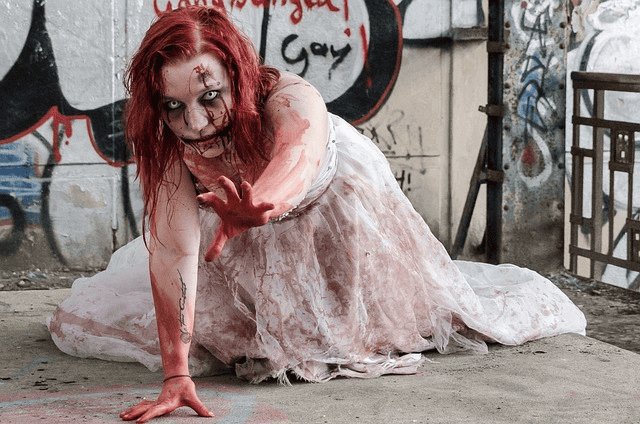
Imagine waking up one day to find out that you’re still financially responsible for a property you thought you had left behind years ago. This nightmare scenario is all too real for many homeowners who have fallen victim to a phenomenon known as a zombie mortgage. In this blog post, we will delve into the world of zombie mortgages, exploring their origins, characteristics, and impact on homeowners. We will also discuss “what is a zombie mortgage and how can that affect bankruptcy”, as well as strategies for dealing with these undead debts and preventing future complications.
Key Takeaways
- Zombie mortgages are dormant second mortgages that can cause foreclosures and financial distress for homeowners.
- Homeowners should take proactive steps to protect themselves from the potential consequences of zombie mortgages, such as foreclosure and credit damage.
- Legal remedies, loan modifications, staying informed and vigilant during title transfer are important strategies to tackle zombie mortgage issues.
Understanding Zombie Mortgages
Zombie mortgages are dormant second mortgages that can result in foreclosure difficulties for homeowners, turning their home into a zombie property. The resurgence of zombie mortgages is attributed to increases in home values and equity, which can lead to zombie foreclosures. As properties are left vacant, they can become unsightly and attract squatters and unlawful activity, while the original homeowner remains liable for property taxes and fees.
A zombie foreclosure refers to a property that has been abandoned by the homeowner but the foreclosure process has not been completed. The consequence of a zombie foreclosure on the property is that it becomes unoccupied for an extended period, resulting in a lack of maintenance and potentially decreasing property values in the vicinity.
The Rise of Zombie Mortgages
The rise of zombie mortgages can be traced back to predatory lending practices and the recession, leading to early defaults and dormant second mortgages. A considerable number of zombie second mortgages were initiated by unscrupulous lenders in the years prior to the 2007 financial crisis. When a second mortgage goes into foreclosure, the borrower’s entitlement to reclaim the property by settling all the mortgage debts is terminated.
Homeowners contending with zombie mortgages need to grasp the significant differences between first and second mortgage foreclosures. The National Consumer Law Center provides an in-depth examination of these differences, helping homeowners navigate the complexities of zombie mortgage situations.
The rise of zombie mortgages has far-reaching consequences for homeowners, neighborhoods, and the housing market as a whole. As more properties are left vacant and neglected, the foreclosure crisis deepens, affecting communities and property values alike. This is when zombie foreclosures happen, further exacerbating the situation.
Characteristics of Zombie Mortgages
Zombie mortgages are often held by debt buyers or collection agents who target equity-rich properties for foreclosure. The origin of these mortgages can be attributed to the proliferation of foreclosures during the 2008 financial crisis, when numerous lenders relinquished their mortgages and transferred them to debt buyers or collection agents.
The implications of zombie mortgages include an inability to recoup the loan, the potential for repossession, and the adverse effect on the homeowner’s credit rating. To address these issues, homeowners can explore options such as loan modifications, communicating with debt collectors, and contesting predatory lending practices.

Bankruptcy and Zombie Mortgages
Bankruptcy can complicate zombie mortgage situations, as homeowners may mistakenly believe their second mortgage has been discharged. The most unfavorable result of a homeowner allowing their second mortgage to go into foreclosure is that they can acquire a new residence 4 years after the discharge of the bankruptcy if they have released the mortgage debt, and no longer have any liens against the property in connection with defaulted mortgages using a Conventional mortgage.
Homeowners need to grasp the process of bankruptcy discharge and the possible outcomes of undischarged zombie mortgages. By remaining informed and vigilant, homeowners can take appropriate action to address and resolve their zombie mortgage situations.
Bankruptcy Discharge Misconceptions
There are several misconceptions surrounding bankruptcy discharge that can lead to confusion about the status of a homeowner’s second mortgage. Some common misconceptions include:
- Married couples are both required to file for bankruptcy
- Bankruptcy permanently destroys one’s credit
- Reckless spending immediately prior to bankruptcy can result in no payment obligation
- Student loans are not dischargeable
It is important to understand the facts about bankruptcy discharge to make informed decisions.
Grasping the actual nature of bankruptcy discharge equips homeowners better to tackle their zombie mortgage situations. It is important to recognize that bankruptcy does not have a lasting effect on one’s credit, and that certain debts, such as student loans, may not be dischargeable in bankruptcy.
Consequences of Undischarged Zombie Mortgages
Undischarged zombie mortgages can lead to foreclosure years after bankruptcy, causing financial distress for homeowners. Zombie mortgages can potentially lead to foreclosure years after bankruptcy, which can result in financial distress for homeowners. This can include the loss of the home, damage to credit, and the inability to obtain new financing.
Homeowners ought to take suitable measures to deal with their zombie mortgages in order to avert the adverse effects of undischarged zombie mortgages. This can include exploring loan modifications, communicating with debt collectors, or utilizing the statute of limitations defense.

Real World Example of Zombie Mortgages
When Joan’s estranged husband passed away, she believed the mortgage on their old house, which he solely owned, would be resolved. But a year later she received a foreclosure notice addressed to him. Confused, Joan contacted the bank and learned they had continued accepting payments from her late husband’s account.
The bank said because the loan was current she now had to take over payments, even though she didn’t inherit the house per the will. Joan couldn’t afford the mortgage and didn’t want foreclosure on her credit.
After researching, Joan realized she was the victim of a “zombie mortgage” – where lenders improperly allow loans of deceased borrowers to remain active. She contacted a bankruptcy attorney who helped her file a complaint with the Consumer Financial Protection Bureau alleging violation of mortgage servicing and debt collection laws.
The attorney also sent a letter to the bank demanding they halt the illegal collections on her deceased ex-husband and immediately correct the credit reporting. After an investigation, the bank admitted fault and apologized for the zombie mortgage. They ceased collections, fixed the credit reports, and paid Joan a settlement for her trouble.
Joan was relieved to have the nightmare resolved. Her attorney advised if she encounters any other deceased debt issues in the future, consumers have legal protections against overly aggressive collections.
How Zombie Mortgages Affect Homeowners
Zombie mortgages can have a significant impact on homeowners, including financial responsibilities and credit implications. Homeowners may be subject to foreclosure if they are unable to address the issue with their zombie second-home mortgages.
Threatening legal action to collect on expired zombie mortgage debt is illegal. Homeowners can safeguard themselves from financial distress and credit damage by comprehending the possible outcomes of zombie mortgages and taking suitable measures.
Financial Responsibilities
Homeowners may still be held responsible for the following expenses associated with zombie properties, even after vacating the property:
- Taxes
- Fees
- Dues
- Fines
Failure to pay these fees can detrimentally affect a homeowner’s credit rating and impede their ability to obtain loans. The association may also initiate legal action against the homeowner in order to reclaim any unpaid assessments.
Local governments may impose fees upon a homeowner for a zombie property, including:
- Yard maintenance
- Repairs
- Trash removal
- Fines for failure to comply with housing codes, zoning laws, or municipal ordinances. To avoid these fees, homeowners may consider hiring a local property management company to maintain the property.
Homeowners can steer clear of these financial responsibilities by taking suitable steps to tackle their zombie mortgages and staying updated about their obligations.
Credit Implications
Zombie mortgages can negatively impact a homeowner’s credit due to mortgage default and foreclosure. A zombie foreclosure will have a detrimental effect on one’s credit. Furthermore, if a zombie mortgage culminates in foreclosure, it can further damage the borrower’s credit score.
Homeowners can safeguard their credit and evade the adverse effects of foreclosure by tackling zombie mortgages and taking suitable action. This can include exploring loan modifications, communicating with debt collectors, or utilizing the statute of limitations defense.
Strategies for Dealing with Zombie Mortgages
There are several strategies homeowners can employ to deal with zombie mortgages, including loan modifications and communication with debt collectors. Understanding the available options can help homeowners take appropriate action to address their zombie mortgage situations and avoid foreclosure.
Homeowners can efficiently tackle their zombie mortgages and safeguard themselves from the adverse effects of foreclosure by examining these strategies and staying updated about their rights and alternatives.
Loan Modifications
Loan modifications can help homeowners avoid foreclosure and manage their mortgage payments more effectively. The process for loan modifications of zombie mortgages involves homeowners petitioning to alter the terms of their mortgage with the lender. This may include adjusting the interest rate, extending the loan term, or reducing the monthly payments.
The main advantages of loan modifications are:
- Assisting homeowners in avoiding foreclosure
- Managing mortgage payments more efficiently
- Lessening the amount of debt owed
- Improving a homeowner’s credit score
However, there are potential risks associated with loan modifications, including the possibility of the lender denying the modification request, or the modification not being sufficient to make the loan affordable.
What Homeowners Need to Know about Mortgage Modification Options
Communicating with Debt Collectors
Communicating with debt collectors can help homeowners understand their rights and negotiate a resolution to their zombie mortgage situation. When interacting with debt collectors for zombie mortgages, homeowners possess the right to contest the debt and request validation of the debt. They also possess the right to request that the debt collector desist from all communication with them.
By maintaining open communication with debt collectors and understanding their rights, homeowners can effectively address their zombie mortgage situations and negotiate a resolution that works for both parties.

Legal Remedies for Zombie Mortgage Issues
Legal remedies for zombie mortgage issues include using the statute of limitations defense and challenging predatory lending practices. By understanding the available legal remedies, homeowners can take appropriate action to address their zombie mortgage situations and protect themselves from the negative consequences of foreclosure.
Homeowners can navigate the complexities of zombie mortgages and safeguard their financial well-being by examining these legal remedies and seeking advice from legal professionals or a property management company.
Statute of Limitations Defense
The statute of limitations can be a powerful defense against foreclosure of a zombie mortgage, depending on the trigger events. The statute of limitations defense is an affirmative defense that can be raised in legal proceedings, referring to the time limit set by law within which a lawsuit or criminal charges must be filed. Should the statute of limitations have expired, the defense can argue that the case should be dismissed due to being filed too late.
The trigger events that initiate the statute of limitations may differ by state, yet typically encompass the date of the last payment, the date of the last written communication, or the date of the last legal action taken by the lender.
If the statute of limitations defense is not raised, the foreclosure action may continue, and the homeowner may be held accountable for the debt.
Challenging Predatory Lending Practices
Challenging predatory lending practices can help homeowners fight against unfair and deceptive mortgage terms. One legal option for addressing predatory lending practices in the context of zombie mortgages is to contest foreclosure on zombie second mortgages. This involves challenging the inappropriate practice of reviving a long-inactive second mortgage and abruptly warning of foreclosure.
By taking legal action against lenders who have engaged in unjust or misleading practices, homeowners can protect themselves from the negative consequences of zombie mortgages and ultimately secure a more favorable outcome in their foreclosure proceedings.
Tips for Preventing Zombie Mortgage Complications
Homeowners need to stay updated and alert, and also ensure proper title transfer, to prevent complications related to zombie mortgages. By taking these proactive measures, homeowners can avoid potential difficulties stemming from zombie mortgages and protect their financial well-being.
Grasping the different aspects of zombie mortgages and the possible complications is necessary for homeowners to navigate these complex situations and ultimately achieve a more favorable result in their foreclosure proceedings.
Staying Informed and Vigilant
Homeowners need to stay updated and alert to prevent complications resulting from zombie mortgages. By consistently examining their credit reports, observing their mortgage statements, and investigating any alterations in regulations or guidance that may influence their situation, homeowners can stay informed and avoid potential issues.
Failing to remain informed and alert can lead to homeowners losing their homes to foreclosure or being exploited by predatory lenders. By staying informed and vigilant, homeowners can:
- Protect themselves from the negative consequences of zombie mortgages
- Ensure that they are aware of any changes in their mortgage status
- Be prepared for potential issues that may arise
Ensuring Proper Title Transfer
To avoid complications related to zombie mortgages, it’s imperative to ensure proper title transfer during the foreclosure process. Carrying out a comprehensive title search and guaranteeing accurate title transfer can help resolve these issues and provide clarity in the ownership of the property.
Homeowners can avert potential difficulties arising from zombie mortgages and safeguard their financial well-being by taking these proactive steps and ensuring proper title transfer. This can ultimately help to secure a more favorable outcome in their foreclosure proceedings.
Summary
In summary, homeowners need to comprehend and address zombie mortgages to avoid foreclosure and financial distress. By staying informed, vigilant, and proactive, homeowners can navigate the complexities of zombie mortgages and ultimately secure a more favorable outcome in their foreclosure proceedings.
With the right strategies, including adherence to fair debt collection practices, and legal remedies in place, homeowners can protect themselves from the negative consequences of these undead debts and move forward with confidence.
Frequently Asked Questions
How do you fight a zombie mortgage?
To fight a zombie mortgage, you can leverage statutes of limitations as a powerful defense against foreclosure of a second mortgage, potentially even extinguishing the mortgage encumbrance on the property.
How does zombie debt work?
Zombie debt is a term used to describe old or no longer owed debt that is purchased from the original creditor or another collection agency for a fraction of its cost, then collected on by debt collectors. These debts may have been forgotten about, paid off, belonged to someone else, or be the result of a computer error or identity theft.
Could zombie mortgages force someone into foreclosure?
Zombie mortgages could force some homeowners into foreclosure, so it is important to take the necessary steps to ensure that their mortgage payments are kept up to date.
How can I safeguard myself from zombie mortgages?
To safeguard yourself from zombie mortgages, it is essential to remain informed and vigilant, monitoring all payments and verifying that the title to your home is correctly transferred.
What is the cause of the resurgence of zombie mortgages?
The resurgence of zombie mortgages is a consequence of the pandemic-induced mortgage foreclosure crisis, with numerous borrowers unable to make payments leading to discharged loans remaining on their credit report.





